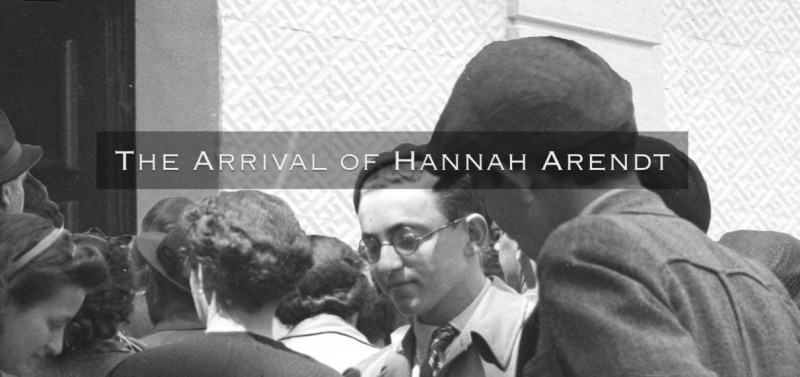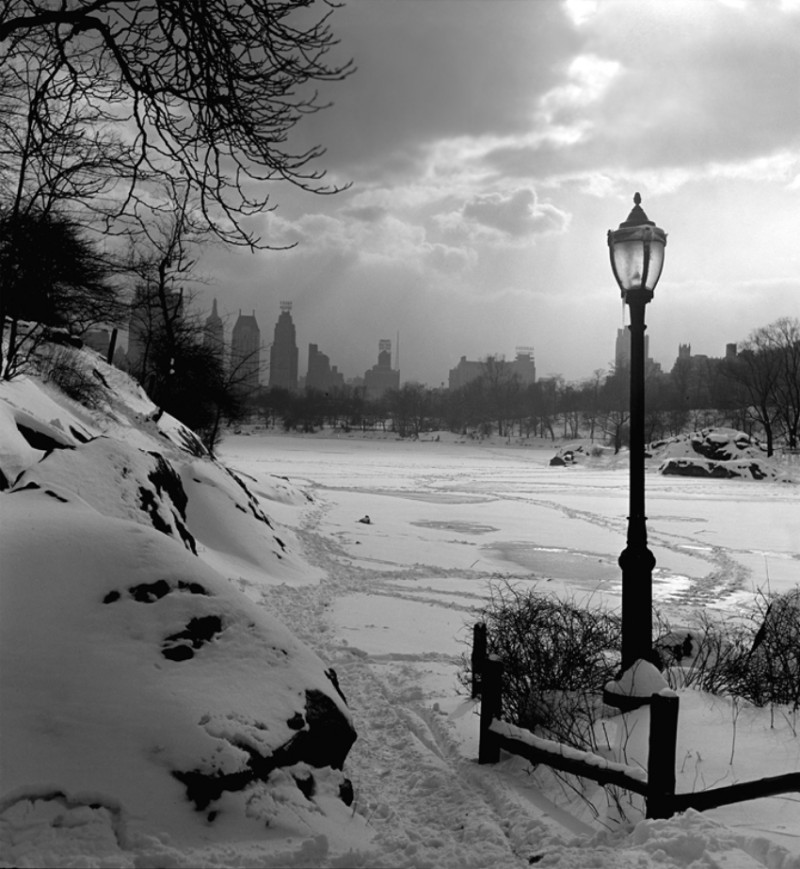
The Arrival of Hannah Arendt
This film describes the arrival of Hannah Arendt - a Jewish, German-American political theorist and publicist - in New York and her reflections on flight and helping people start over.

January 1, 1940
The New Year
Last night everyone went out to hev a gud tiym. My aunt and uncle went to play cards at Mrs. Shore’s apartment. Selma and her boy went off to dance. Marvin went to Times Square. I didn’t want to go anywhere. It’s a dreadful day for me. A year ago my mother was alive. She made potato pancakes for us, but not because it was New Year’s Day. We never made a big deal about New Year’s. She made them because Uncle Zaydl had come to take us out on a sleigh ride. Mama, may she rest in peace, didn’t want to let him go without some food. „Food?“ uncle Zaydl said. „If we’re talking food, then let’s have some potato pancakes.“ So…we ate potato pancakes. In the end, we didn’t really have such a good time. As soon as we got onto the broad street, our sleigh was attaced by snow. At first we thought we were being stoned, but then it turned out that they were snowballs thrown by some hooligans, may a plague strike them, who were cursing and whistling at us. We turned back home all wet and dirty. Uncle Zaydl wished them a miserable end, and I nearly cried out of disappointment. But still, there was a home with a mother, with Lublin, and also with Layzer. I never imagined then that within a year I would be in a strange house, alone, living on charity, or that I wouldn’t even know what happend to my father, my brother, or my home.
I never imagined that I would be a refugee. What a horrible word: refugee. The word is a curse. It probably comes from refuse, garbage. A refugee is truly cursed, discarded, and worthless. In any case, I didn’t go anywhere today. For me, this New Year is not a time for celebration. It would have been better if the last New Year had never ended – or perhaps had ended for me as it did for my mother, may she rest in peace.
The author of the novel “A Jewish Refugee in New York” Kadya Molodovsky is one of the most important Yiddish poets of the mid-20th century. She was born in 1894 in Bereza Kartuska, Russian Empire and experienced the typical trajectory of Jewish migration of the 20th century: Odessa, Kyiv, Warsaw, New York, Tel Aviv. In the course of life she worked as a teacher, editor, poet, critic, playwright and writer. When World War I broke out, she worked in a day home for Jewish children who had fled, run by her teacher in Warsaw. She continued this work in various places until 1917. Later she moved to Odessa to escape the war front and taught in a kindergarten there. In 1917, after the October Revolution, she could not return to her parents, and so remained in Kyiv, where she again took a job as a kindergarten teacher. Surviving the pogrom in Kyiv in 1920, she published her first poem.
In 1935 she moved to New York, where she published her book “In Land fun Mayn Gebayn” (“In the Land of My Bones”). In it, she addresses the internalization of exile in fragmentary poems. From this point on, her work in New York flourished.
In her work “A Jewish Refugee in New York,” Kadya Molodowsky presents the life of Rivke Zilberg, a twenty-year-old refugee in New York, in the form of a diary. Rivke Zilberg’s experiences have a certain similarity with Molodovsky’s fate. The diary covers such topics as: Flight, Holocaust, acculturation and more.
Kadya Molodovsky (translated by Anita Norich), 2019: A Jewish Refugee in New York. A Novel by Kadya Molodovsky. Bloomington: Indiana University Press, pp. 3-4.